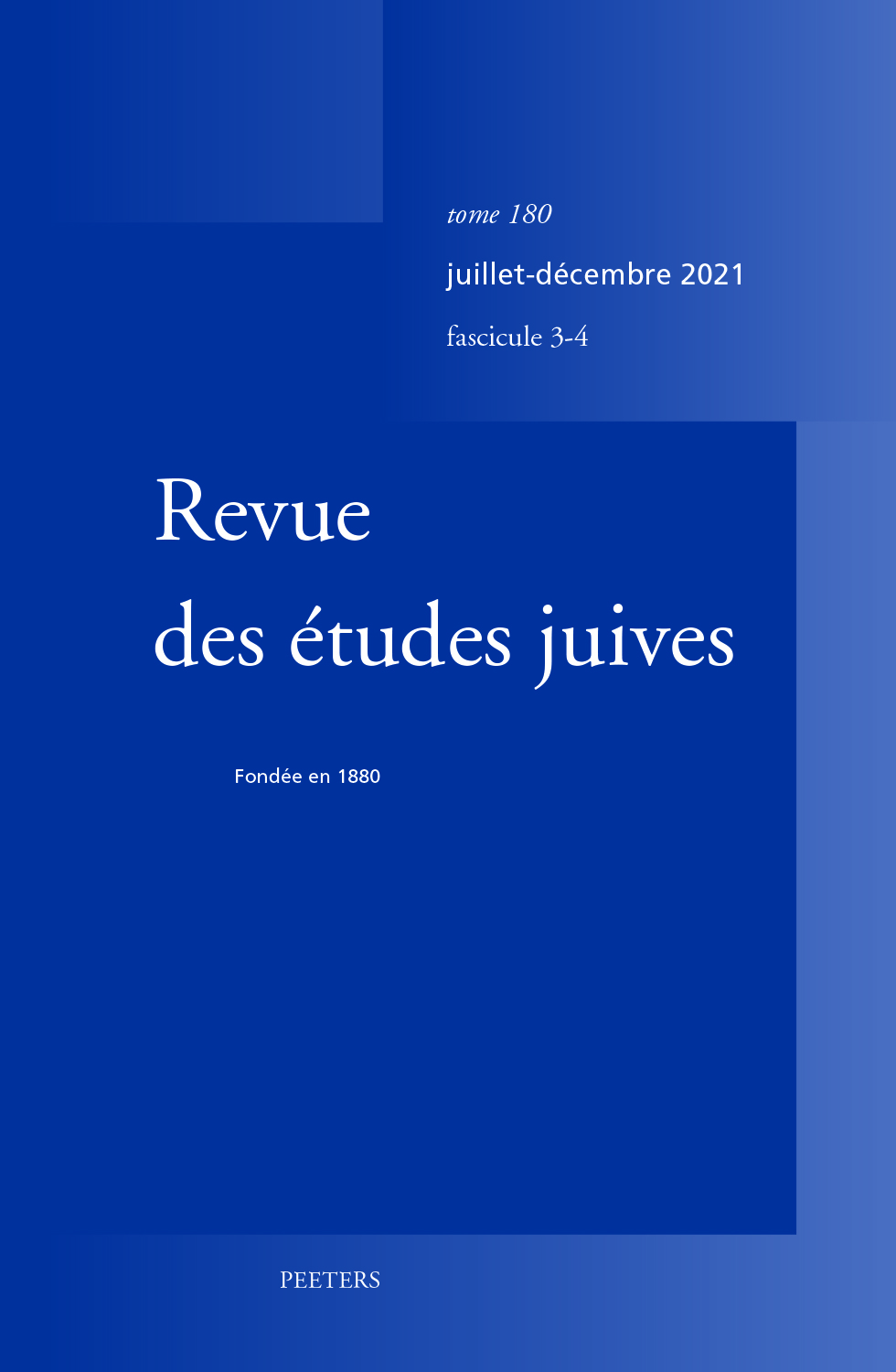 previous article in this issue previous article in this issue | next article in this issue  |

Preview first page |
Document Details : Title: Universalisme et particularisme. Vers une définition de la Haskala en Allemagne Author(s): SCHULTE, Christoph Journal: Revue des Études Juives Volume: 159 Issue: 1-2 Date: janvier-juin 2000 Pages: 131-144 DOI: 10.2143/REJ.159.1.154 Abstract : Cet article propose une définition de la Haskalah en Allemagne en rapport avec la situation des juifs dans les sociétés et les états chrétiens de l'époque des Lumières. Malgré leur diversité, les Maskilim allemands avaient en commun le souci d'égaler en excellence l'Aufklärung allemand et de demeurer juifs. Leur dessein commun était la diffusion du savoir profane parmi les juifs d'Europe et de promouvoir l'amélioration du statut civique des juifs dans le cadre de l'état chrétien. This article deals with the difficulties of a proper definition of Haskalah in Germany. Being an enlightenment movement of a minority in a largely protestant society, the common problem of all Maskilim in Germany (despite a great number of religious and ideological differences) was that of living up to the highest standards of German Aufklärung and of preserving at the same time their (eventually modernized) Jewish identity. The common aim of Haskalah was spreading secular knowledge among fellow Jews and to achieve the civic betterment of the Jews in the Christian states. |
|


